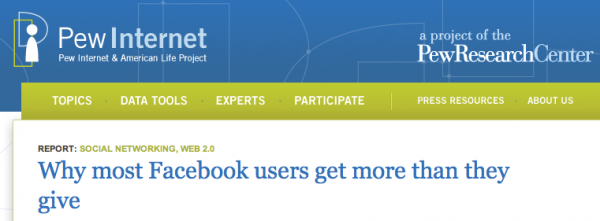
Recent tragic events here in the United States (and around the world) have heightened awareness of the global reach of media, especially social media, and the consequences for businesses using it.
Small business advertising has historically been local, making it easy to craft messaging that is appropriate for the targeted audience. However, now any piece of digital content has the capability of reaching audiences far removed from those for which it is intended.
This creates new responsibilities that many businesses are only just beginning to fully comprehend.
Your small business may be local, but your words spread far and wide, and that has consequences that can dramatically affect its reputation.
It is prudent for every business to recognize that they are a media company, and with that comes responsibilities for which is must be accountable.
Have a Larger Perspective
Many businesses autopublish information on their social media channels. This practice is useful for convenience, provided the content is monitored. Unfortunately, many influencers and businesses were swept into a controversy in the wake of the Boston Marathon tragedy, largely because what they were publishing had gone unchecked.
This is precisely why delegating the social media function to a low-level employee is not a good idea. When this is done the risk of making making poor decisions rises significantly.
To be sure, this may also hold true for media agencies that are inexperienced, or do not know your business well. And let’s face it, nobody knows your business like you do.
The solution is to weigh what is published against the values and beliefs of the organization.
Naturally, this larger perspective has to come from leadership, and it has to be clearly articulated in a manifesto or core values that everyone then adheres to.
Choose a Professional Approach
Zappos is an example of a company that manages their social media well; and this is accomplished by simply linking its employees’ social media sharing to its ten core values, which are focused on achieving world-class customer service.
When a business is intensely focused on the customer, it’s messaging necessarily becomes more professional. It’s when businesses seek to draw attention to themselves that the message can be interpreted to be self-serving, insensitive, or shallow.
Vital elements of the media message to carefully consider are these:
Language – We are judged by our words. Using profanity or slang rarely postions a company as edgy or cutting edge; it is likely to be viewed as amateurish at best, and more likely unprofessional.
Timing – Choosing your timing well respects your audience. This includes both the hour and day of the week. Nobody wants to receive a business message on a weekend, with the exception of a light wrap-up of the week.
Content – Content is king, so design it for royalty – your customers. It’s quality reflects your personal and business brand.
Stories – Stories should entertain, educate, and inspire. They should deliver value and never make people feel uncomfortable. Stories about exceptional customer experiences are nearly always be appreciated.
Personal or Impersonal – Being too personal or too impersonal is not advisable when working with clients and customers, and so it is with your social media. Just be social.
Accuracy – Do your fact checking and avoid racing to report news that you have not verified as accurate.
Be a Responsible Publisher
Have guidelines that you live by. Minimize automation as much as possible, and always bring the wisdom of experience to bear on your social media marketing.
Responsible online publishing is now essential.
Learn to hold your business accountable for its social media, because its extended communities already are doing so.
About the Author: Jeff Korhan, MBA, helps mainstream small businesses create exceptional customer experiences that accelerate business growth. Get more from Jeff on LinkedIn, Twitter and Google+.
Jeff is also the author of Built-In Social: Essential Social Marketing Practices for Every Small Business – Just Released April 2013 (Wiley)



